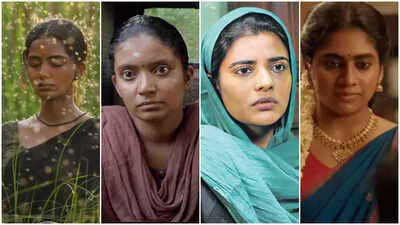ARTICLE AD BOX

While some believe that cinema is a free market and language barriers cannot be imposed on art and artistes, others argue that Tamil actresses, especially those with dark complexions, are being sidelined.
Tamil cinema’s representation (or lack thereof) of its native actresses has long been a topic of discourse. It found fresh ground recently with the discussions around Rajisha Vijayan and Anupama Parameswaran, both fair-skinned Malayali actresses, being cast as dark-skinned Tamil women in Mari Selvaraj’s Bison.What drew further criticism was the filmmaker’s response when probed about it. “It’s all a matter of choices. We don’t choose an artiste based on their skin colour or beauty but based on the extent they are willing to go for the role,” he said. Later, Mari acknowledged the criticism towards his statement.While some believe that cinema is a free market and language barriers cannot be imposed on art and artistes, others argue that Tamil actresses, especially those with dark complexions, are being sidelined.
Regardless of where one stands on the issue, it’s important to keep the discussions alive, points out director Madhumita. She says, “The conversation surrounding colourism isn’t about shaming anyone, but about unlearning habits shaped by history.
”‘MANY TAMIL ACTRESSES ARE TRYING TO LAND AN OPPORTUNITY’Semmalar Annam, who has acted in films like Maadathy and Yaathisai , points out the irony in the way filmmakers approach casting. “When directors say that they couldn’t find a Tamil actress to cast in their film, it gives off the impression that there are no actresses here.
That’s disappointing and painful because I’ve seen many Tamil actresses trying to land an opportunity here,” she opines.“I think people are underestimating Tamil actresses without creating opportunities for them. When writing a strong female character, people here seem to automatically assume that only actresses from the Malayalam industry can do it. It isn’t correct to say that there aren’t any Tamil actresses (to pull off a role) without ever casting them,” she adds.‘COLOURISM IS NOT UNIQUE TO TAMIL CINEMA’Madhumita reveals that she has faced subtle resistance while casting dark-skinned women in her films. “Sometimes, it’s not an outright rejection, but a hesitation disguised as market reasoning. You hear phrases like, ‘Will this face sell?’” she informs.The filmmaker feels colourism is “shaped by our collective conditioning, one that equates fairness with beauty/desirability”. “It’s not unique to Tamil cinema, but is part of a larger South Asian cultural narrative.
Now, I’m seeing a slow shift where audiences connect more with authenticity than appearance,” she adds. ‘Fair-skinned/North Indian heroine prototype is fading’ Nelson Venkatesan, who has directed films like DNA and Farhana , opines that actors should only be boxed based on their talent.
“Filmmakers don’t consciously bring in an actress with the intention of changing her skin colour. But there is a percentage of people who operate on the prototype, ‘Heroine ah ? Bombayla poi thedunga ’.
When I started, I heard people wanting to cast fair-skinned or North Indian girls, as they look like ‘heroines’. But it’s losing steam as films have become rooted. Creators like me go behind actors who fit the characters organically.”‘People have a general stereotype that fair skin is better’ Nelson Kannada actress Vijetha Vasist, who is set to make her Tamil debut with Vijay Milton’s Gods And Soldiers , shares that the Tamil industry has been accepting of her natural complexion. “No one (in the Kannada industry) directly told me that my skin colour was the reason I didn’t get cast for a role. But when someone else is eventually cast for it, you can guess why you weren’t selected.
Sometimes, they don’t offer an audition. They just look at you and send you back. It’s not just Kannada. People have a general stereotype that fair skin is better. I feel it’s changing now,” she states.

 16 hours ago
5
16 hours ago
5








 English (US) ·
English (US) ·